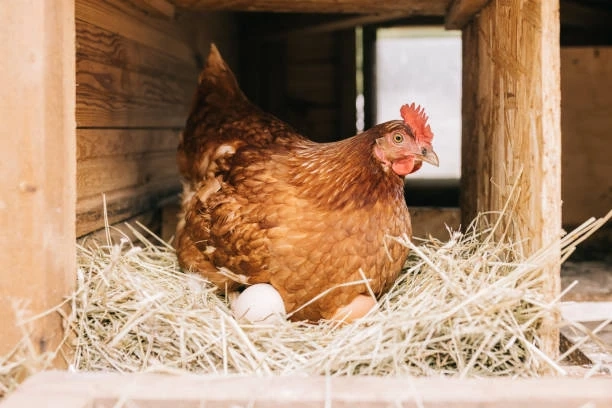In the world of breakfast choices, few options rival the nutritional powerhouse that is the free-range egg. With concerns about the source and quality of our food becoming increasingly prevalent, many individuals are turning to alternatives that not only offer health benefits but also adhere to ethical and sustainable practices. Free range eggs Houston have emerged as a popular choice, providing a safer and more nutrient-packed breakfast option compared to conventional alternatives. In this blog, we will delve into the reasons why free-range eggs stand out, exploring their nutritional value, safety benefits, and the positive impact they can have on both our health and the environment.
The Nutritional Powerhouse of Free Range Eggs
A Rich Source of Essential Nutrients
Free-range eggs are a nutritional treasure trove, offering a wide array of essential nutrients that contribute to overall well-being. Unlike conventional eggs, those laid by free-range hens boast higher levels of omega-3 fatty acids, which play a crucial role in heart health, brain function, and reducing inflammation. These eggs are also abundant in high-quality protein, making them an excellent choice for those looking to build and repair muscles.
In addition to omega-3 fatty acids and protein, free-range eggs are rich in vitamins such as B12, which is essential for nerve function and the formation of red blood cells. Moreover, they contain significant amounts of vitamin D, crucial for bone health and immune system support. The combination of these nutrients makes free-range eggs a well-rounded and wholesome breakfast option that can contribute to a balanced diet.
Superior Nutrient Absorption
One distinguishing factor of free-range eggs is the superior nutrient absorption attributed to the hens' natural diet. Free-range hens have the freedom to forage for insects, seeds, and plants, resulting in eggs with higher levels of key nutrients. The natural diet of these hens translates to eggs with increased levels of antioxidants, such as lutein and zeaxanthin, which are essential for eye health and may reduce the risk of age-related macular degeneration.
The hens' exposure to sunlight during their foraging activities also enhances the vitamin D content of the eggs. This natural and holistic approach to egg production ensures that consumers receive not only higher nutrient levels but also a more bioavailable form of these nutrients, contributing to better absorption within the human body.
Safety Benefits of Free Range Eggs
Reduced Chemical Exposure
One of the primary concerns surrounding conventional egg production is the potential exposure to harmful chemicals and antibiotics used in intensive farming. Free-range eggs offer a safer alternative as hens are allowed to roam freely, reducing their exposure to pesticides, herbicides, and synthetic fertilizers commonly used in conventional feed.
The minimal use of antibiotics in free-range farming also contributes to safer eggs for consumption. Conventional methods often involve the routine use of antibiotics to prevent diseases in crowded conditions. In contrast, free-range hens, with access to open spaces and a more natural environment, are less prone to diseases, minimizing the need for antibiotic interventions.
Enhanced Egg Quality
Free-range eggs not only prioritize safety through reduced chemical exposure but also exhibit superior egg quality. The hens' natural diet and lifestyle contribute to eggs with thicker shells, vibrant yolks, and a more robust overall structure. These characteristics are not merely aesthetic; they also signify a healthier and more nutrient-dense egg.
The enhanced quality of free-range eggs is a testament to the overall well-being of the hens and the sustainable practices employed in their production. Choosing free-range options ensures that consumers receive eggs of the highest quality, free from the potential contaminants associated with conventional farming practices.
Positive Impact on Health and the Environment
Ethical and Sustainable Practices
Beyond their nutritional benefits, choosing free-range eggs aligns with ethical and sustainable practices in agriculture. The living conditions of free-range hens are far superior to those of their conventionally raised counterparts. The ability to engage in natural behaviors such as scratching, foraging, and dust-bathing contributes to the overall welfare of the animals.
Supporting free-range egg production also encourages environmentally friendly practices. Free-range farms typically prioritize sustainable methods, such as rotational grazing and reduced use of chemical inputs. This commitment to environmental responsibility not only minimizes the ecological footprint of egg production but also sets a positive example for the future of agriculture.
Local Economy Support
Opting for free-range eggs often means supporting local farmers and businesses. Many free-range egg producers are small-scale or family-owned operations that prioritize quality over quantity. By choosing free-range options, consumers contribute to the economic well-being of local communities, fostering a sustainable and resilient food system.
Conclusion
In the quest for a safe and nutrient-packed breakfast option, free-range eggs emerge as a compelling choice. Their nutritional richness, safety benefits, and positive impact on both health and the environment make them a standout option in the realm of breakfast foods. By choosing free-range eggs, consumers not only prioritize their well-being but also actively contribute to ethical and sustainable practices in agriculture. As awareness grows about the source and quality of our food, free-range eggs offer a delicious and conscientious solution for those seeking a wholesome start to their day. Exploring farm stores in Houston can be a convenient way for local consumers to access these ethically sourced and nutritionally dense eggs.


